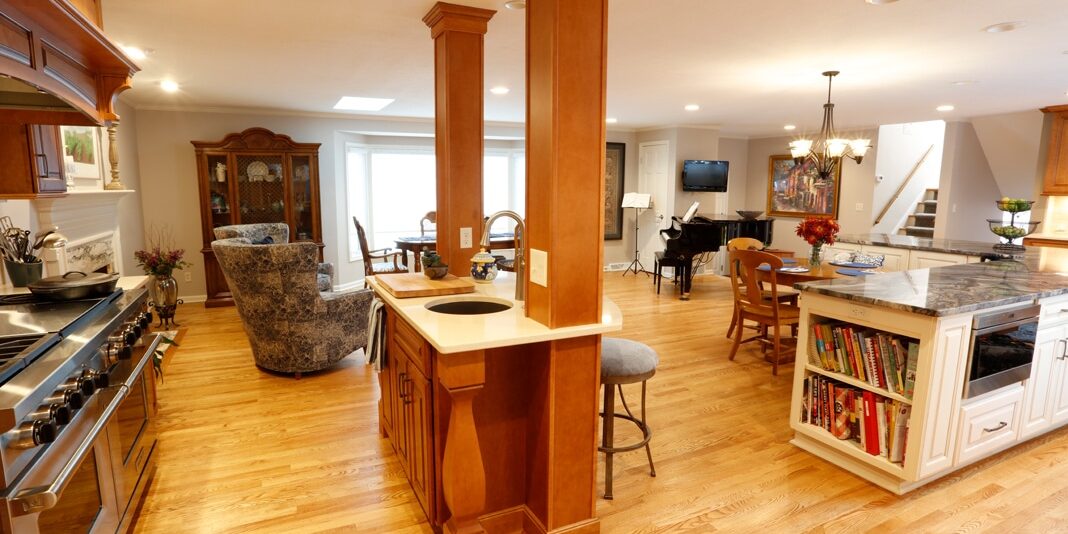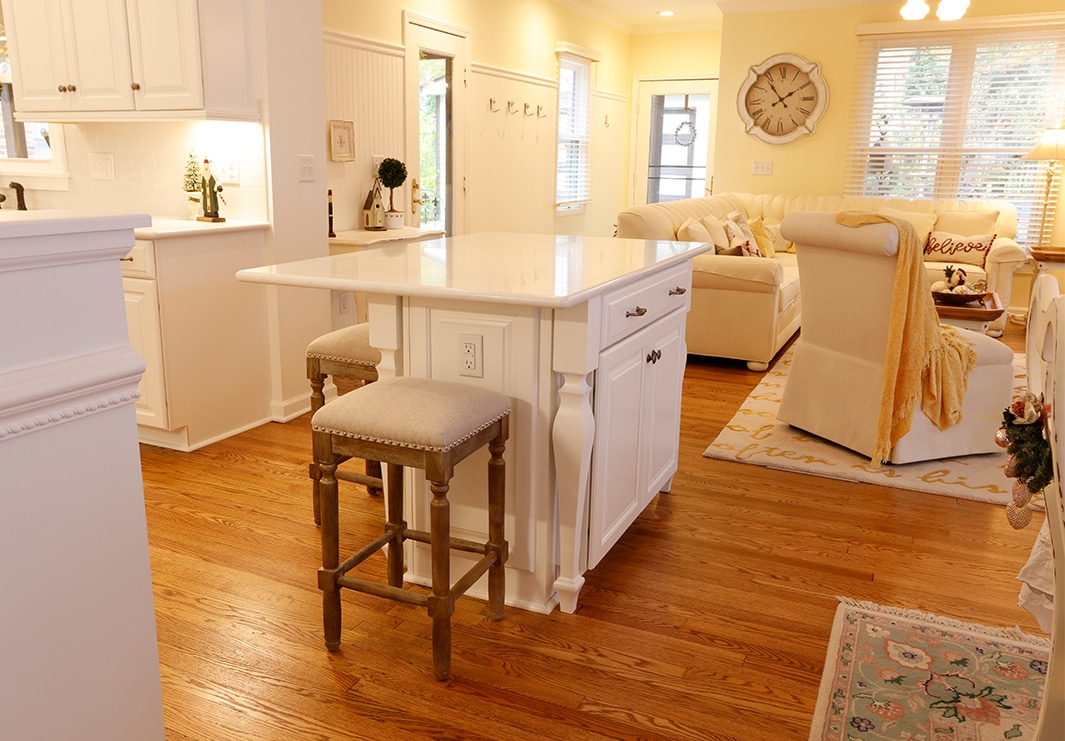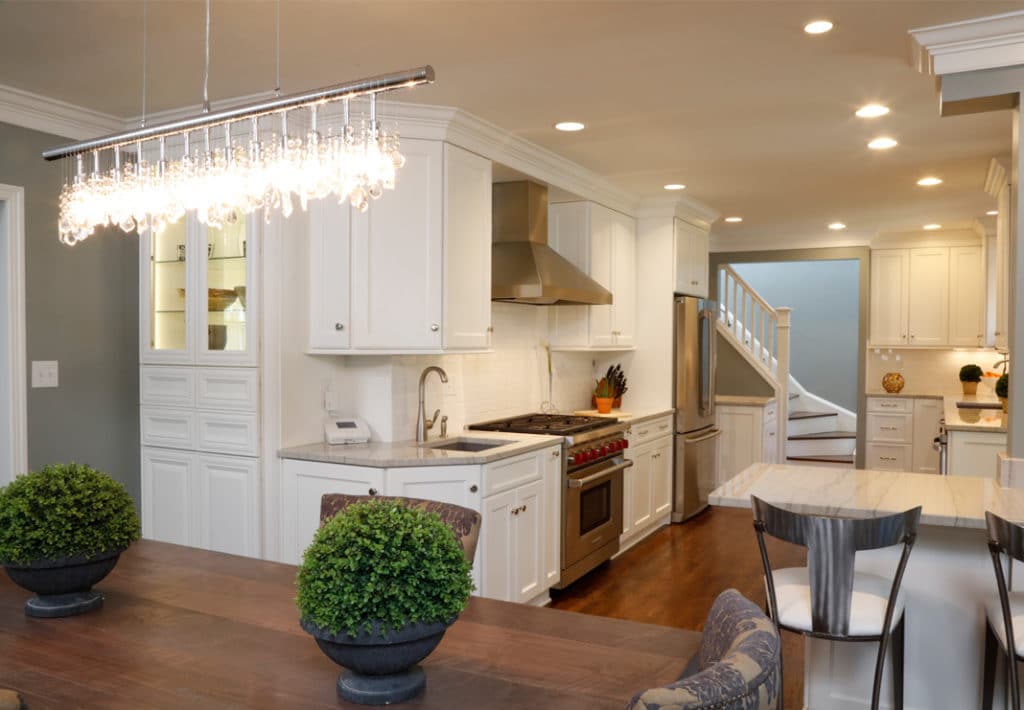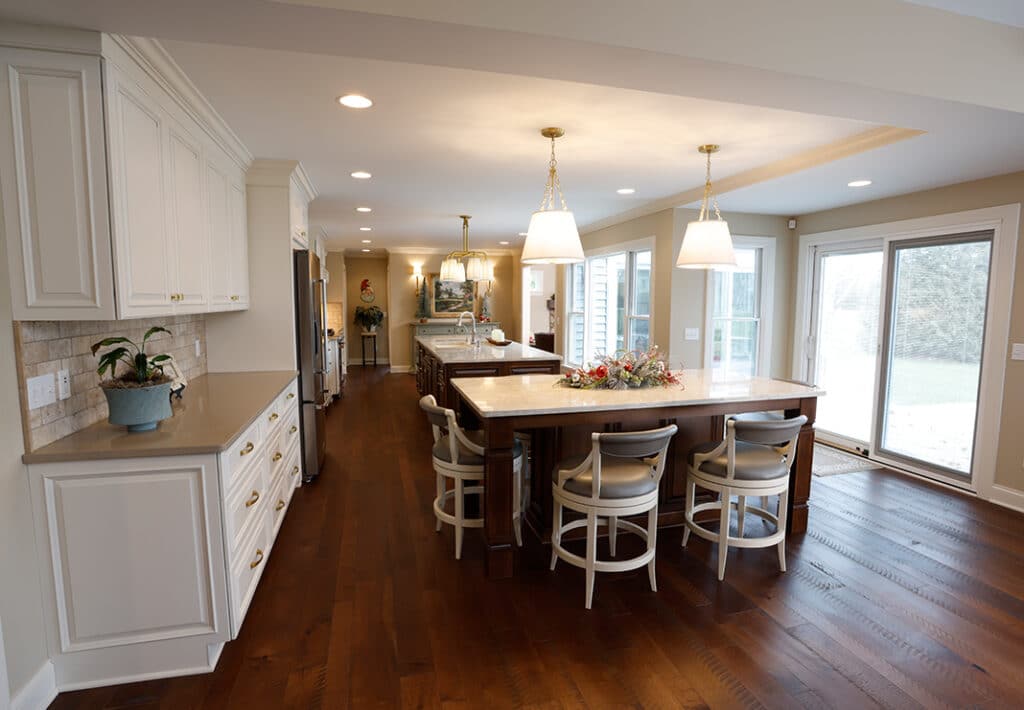Hardwood floors are the epitome of classic elegance. They add warmth, character and value to a home. However, they also come with a price tag—not merely in cost but also maintenance and potential for wear and tear. Enter luxury vinyl plank (LVP), a modern flooring option that offers a similar aesthetic with lower upkeep.
This blog delves into the pros and cons of these popular flooring products to help you decide which is best suited for your home.
Luxury Vinyl Plank Flooring
LVP is a composite product born from the latest flooring technology. It’s crafted in layers: a transparent wear layer protects against scratches, stains and wear and tear; a design layer boasts the printed pattern that mimics wood, stone or tile; a rigid core layer provides stability; and a backing layer offers support and often includes foam or cork.
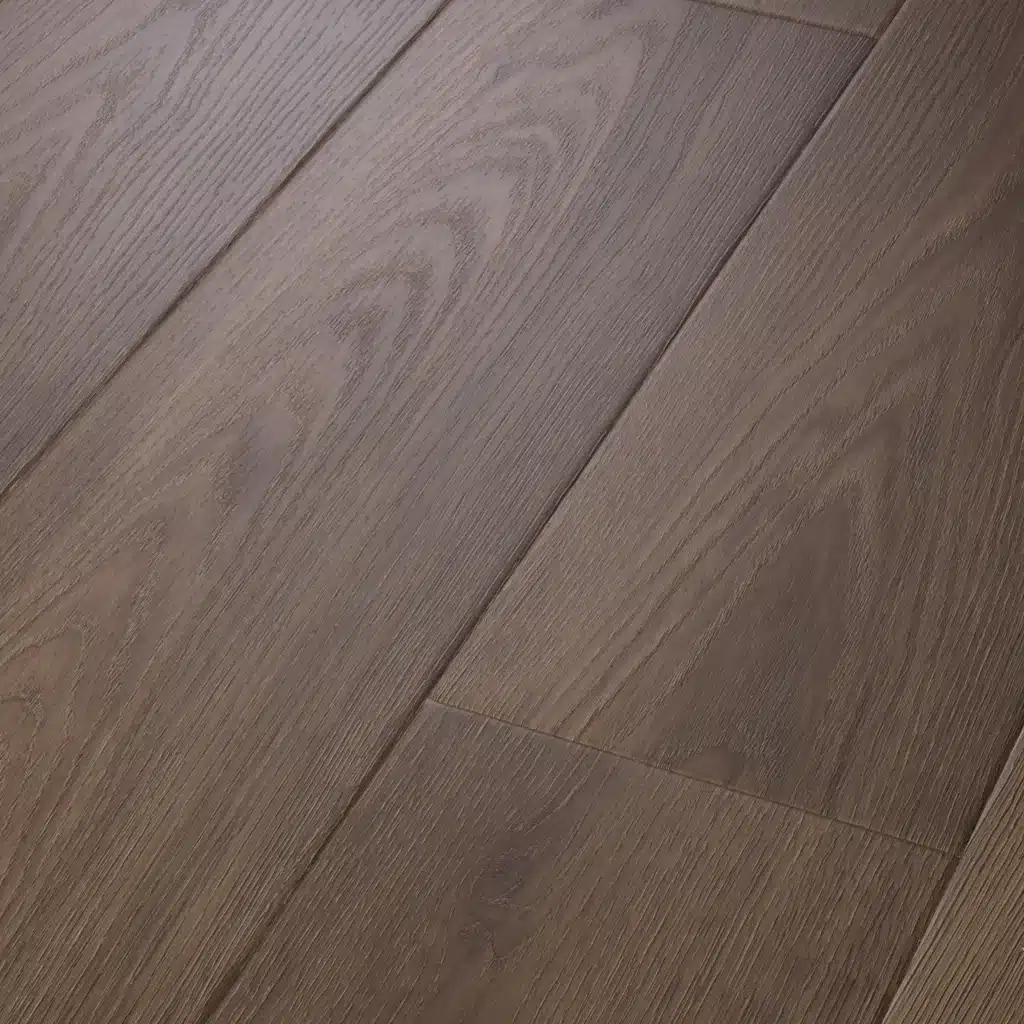
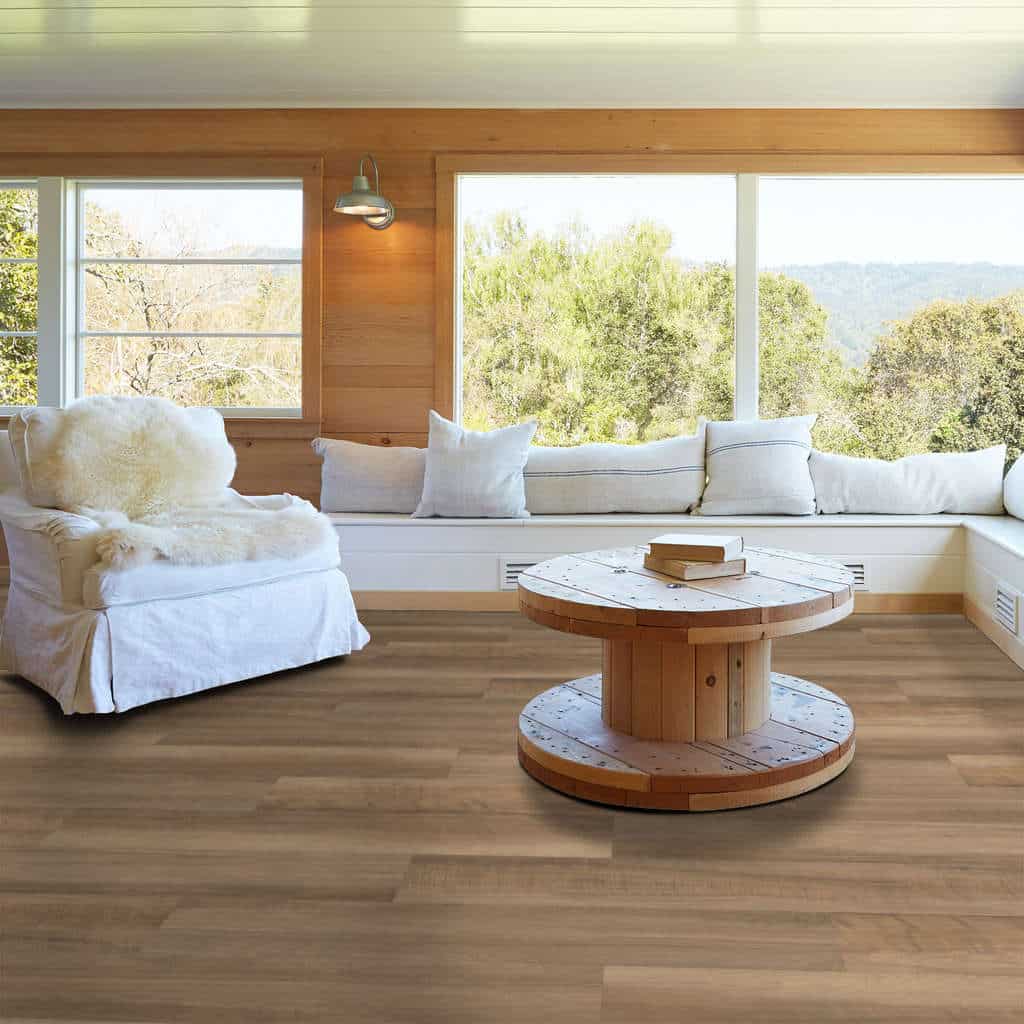
LVP excels in several key areas. Here are the main benefits that make it an attractive choice for home flooring:
- Exceptional durability. Its water resistance makes it ideal for kitchens, bathrooms and basements—areas where hardwood would be less than ideal. It’s also incredibly durable, resisting scratches, dents and stains. This makes it an excellent choice for homes with pets or high-traffic areas.
- Design versatility. The most impressive aspect of LVP is its design versatility. With virtually limitless design options, you can find LVP to match any style. The possibilities are endless, from various wood finishes to stone and ceramic tile looks. Add the option for textured surfaces and embossed patterns, and you have flooring that can transform a space.
- Flexible installation. Another advantage of LVP is its ease of installation. It can be installed using various methods to suit different situations, and Dover Floor & Tile Center can help you determine the best option for your home.
- Longevity. While LVP can’t match the lifespan of solid hardwood, it’s still highly durable. Expect 10-25 years of life from your LVP floor, often backed by warranties of up to 25 years, depending on the manufacturer.
Hardwood Flooring
Hardwood flooring is a timeless luxury that can last a lifetime when cared for properly.
In addition to adding value to your home, here are natural hardwood’s standout benefits:
- The epitome of style. Natural hardwood flooring is available in many species, from classic oak and cherry to trending blonde woods and bamboo, ensuring a perfect match for any home. Again, hardwood is a classic choice that never goes out of style, which adds value to a home remodel.
- Warmth and comfort. Hardwood flooring’s natural resilience provides a comfortable cushion underfoot while being durable. Additionally, hardwood floors can help regulate the temperature in your home. In the winter, they help retain heat; in the summer, they help keep your home cool. This can lead to energy savings and increased comfort.
- Timeless character. Hardwood floors develop a unique patina over time. This patina results from the natural aging process and the wear and tear of everyday life. The patina of a hardwood floor can add a sense of history and character to a home and help create a warm and inviting atmosphere.
Hardwood’s biggest drawback is its susceptibility to water damage. While it can be refinished to restore its appearance, severe water damage often requires replacement. Check out this blog about things to consider before buying hardwood flooring for your home.
Comparisons: LVP vs. Hardwood
LVP and hardwood offer a wide range of styles to suit any taste. While LVP does an excellent job of mimicking the look of hardwood, discerning eyes can often spot the difference. Ultimately, the choice between the authentic beauty of hardwood and the practicality of LVP comes down to personal preference.
Durability
Both LVP and hardwood can handle the demands of most living spaces. However, LVP’s water resistance gives it an edge in moisture-prone areas. Additionally, LVP can be installed outdoors in covered areas, making it a versatile option.
Price
Cost is a significant factor for many homeowners. LVP is generally more affordable than hardwood, with material costs often less. While LVP may require replacement after its lifespan, hardwood can be refinished multiple times, extending its life.
Longevity
Both flooring types require minimal maintenance, but hardwood will eventually need refinishing every 7-10 years or longer, depending on wear from your particular lifestyle. LVP, on the other hand, doesn’t require refinishing but will need to be replaced when the wear layer is compromised.
Sustainability
Both hardwood and LVP have environmental pros and cons. Hardwood is a renewable resource when harvested sustainably and is biodegradable. However, LVP often contains recycled materials and is recyclable itself. The environmental impact also depends on the specific manufacturer and their practices.
Understanding Your Options
Choosing between hardwood and LVP involves considering various factors such as your lifestyle, budget and aesthetic preferences. Factors like pets, climate and household size also play a role.
Remember, the ideal flooring complements your lifestyle and enhances your home’s beauty.
To make the best decision for your home, schedule a free consultation with the experts at Dover Floor & Tile Center. We’ll assess your needs and help you find the perfect flooring solution.
The best is yet to come,
Beth Orr
